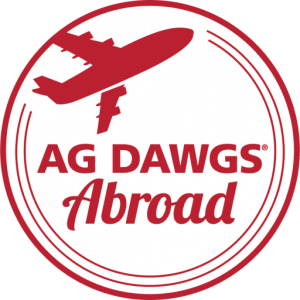Getting my ducks in a row before I leave for France has been more work than I expected! I’ve got one word for anyone wanting to study abroad: money! Get it in order, now. This has two components: funding the trip, and international monetary accessibility.
Studying abroad can be expensive, no doubt, but it doesn’t have to be prohibitively so. I originally wanted to attend a semester-long program in one of the most expensive parts of the world, but had to face reality. College isn’t cheap, and I’m not made of money (it sounds fun, but I’m pleased to be made of flesh and bone). My hopes were dashed and I nursed my bitterness for a time – I don’t suggest it, by the way, but it was real – and declared I wouldn’t study abroad, I have fantastic opportunities in Georgia alone, by George! And it’s true, I do! CAES is an incredible school that works had to provide opportunities from its students all around the state and country. But not getting to go to my first pick study abroad is also no reason to not jump on the chance to go to France, study a mix of agricultural methods, econ, and policy, and drink in the culture (and wine!). I’d be a fool not to go, what with my interest in the intersection of ag, science, and policy! So I applied to the program, yes, but also to every scholarship opportunity I found for my program through UGA. And what did I get but $3,000 in scholarship money to go along with my acceptance letter! Some of it came from the Office of Experiential Learning and some from our very own College of Ag, but an exciting portion was being interviewed for the new Ratcliffe Scholarship, CAES’ premier experiential opportunity scholarship. I ended as a finalist instead of a winner, but the interview experience made it all worth it, and I felt honored to be selected as such. With my scholarship funds, I only have to pay for food, travel, and gifts while studying abroad, and even can now spend a few days in Portugal after my trip!
The second portion of maintaining your money while abroad is making sure you can spend it! I’ll be in at least four countries on my trip, two of which aren’t part of the EU and have their own currency. You can exchange your US dollars at a bank, if you give them time, but it takes a week or so to get the international currency, and if you’re going multiple places, it might not be helpful. Most credit and debit cards are chip-and-PIN ones, and technologically speaking, those can be used internationally. Of course be sure to check with your bank(s) before you make that assumption, because I found out while trying to pay for my Turkish visa that my credit union debit card doesn’t work internationally, due to security reasons! I can’t imagine finding that out at the Istanbul airport – or at least I don’t want to! The credit card from the same credit union can be used, and the debit card from my bigger bank, no problem at all. Just make sure if you have to order a new card or if yours is set to expire during your trip (as mine was) to do that with plenty of time to get it in the mail. I ordered a new card almost a month ago, as it was supposed to take five to seven business days to arrive, but instead it took fifteen, and my PIN mailer never arrived! Luckily, my bank was able to change it this morning – something not all banks can or will do – so I’m all set, but it was a closely escaped nightmare. Make sure your financial institutions know when you’re leaving and at least generally where you’re going. Mine was happy to take the dates and simply tag it “Europe,” while I’ve heard of other banks requiring more specificity. I’m taking two cards and cash, in USD, which I suggest you do as well, in case something happens to one of the cards. Having multiple forms of paying for things is always a good idea. I certainly don’t suggest trying to pay for things in USD while in Europe, but your mom was right when she said you need travelling money, and sometimes the wrong currency is better than no money. American money is pretty universally valuable, too, so it can’t hurt to have it. If all goes well, you can exchange it at a bank (don’t go to non-bank exchange booths, as the rates are never in your favor!) while abroad or have some extra cash when you return home.
Knowing that my money is secure and accessible really took some weight off my shoulders, and now I can’t wait to touch down and try new foods, buy some goodies, and learn about French agriculture!
